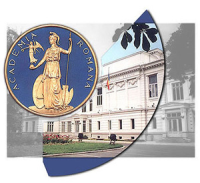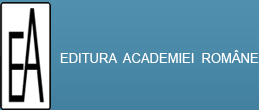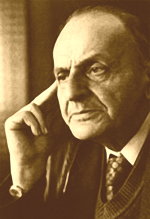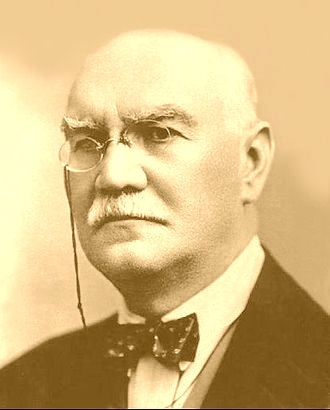Main Menu
DEPARTAMENTE
REVISTE
PUBLICAŢII PERIODICE
LEGĂTURI
CONFERINȚE
 Simpozionul Național Constantin Noica, Ediția a XVI-a „Povestiri despre om…” (26-29 septembrie 2024)
Simpozionul Național Constantin Noica, Ediția a XVI-a „Povestiri despre om…” (26-29 septembrie 2024)SIMPOZIONUL NAŢIONAL
SIMPOZIONUL NAŢIONAL
Welcome
GOETHE AND THE PHILOSOPHY OF HIS TIME
victorg, Friday 11 October 2024 - 00:00:00 //
GOETHE AND THE PHILOSOPHY OF HIS TIME
International Online Conference
November 11-13, 2024
Organized by the Constantin Rădulescu-Motru Institute of Philosophy and Psychology of the Romanian Academy, Department of Western Philosophy, Bucharest.
November 11-13, 2024
Organized by the Constantin Rădulescu-Motru Institute of Philosophy and Psychology of the Romanian Academy, Department of Western Philosophy, Bucharest.
* Information regarding the conference link can be found in the conference program.
Johann Wolfgang von Goethe’s relationship with philosophy was complex and multifaceted, spanning various intellectual currents of his time. While Goethe is best known as a prominent literary figure, his engagement with contemporary philosophical ideas significantly influenced his worldview, literary works, and scientific pursuits.
As is well known, Goethe (1749-1832) received a solid education in classics, literature, and philosophy. His university studies in Leipzig and Strasbourg also introduced him to past philosophical doctrines, as well as to Enlightenment ideas. In the 1770s, Goethe became associated with the Sturm und Drang movement, which promoted the rejection of Enlightened rationalism and an emphasis on subjectivity and emotion. This period marked Goethe’s rebellion against traditional norms and his exploration of a more passionate and emotive expression in literature. Goethe’s move to Weimar in 1775 marked a shift towards a more classical and harmonious aesthetics, known as ‘Weimar Classicism’. Here, Goethe’s interactions with influential thinkers, and his intense philosophical discussions, played a crucial role in his intellectual evolution, contributing to his holistic and interdisciplinary approach. One of the most significant influences on Goethe’s philosophical outlook was his friendship with Friedrich Schiller, a key literary figure of the time. Kantian and idealist thought in general encouraged him to deepen his engagement with philosophy. Goethe’s major literary works, such as Faust, Wilhelm Meister’s Apprenticeship, and Elective Affinities, grapple with major philosophical questions. While Faust, for instance, explores themes such as human striving, the problem of knowledge, and morality, and engages with German idealist ideas, Wilhelm Meister’s Apprenticeship can be said to reflect on philosophical issues such as education, aesthetics, and individual development. Undoubtedly, Goethe’s interests reached beyond literature and philosophy in the narrow sense, and included scientific topics, particularly botany and color theory. His empirical approach to scientific inquiry, evident in works such as The Metamorphosis of Plants and Theory of Colors, testifies to the endorsement of an observational and phenomenological method that complemented his reception of Kantian and idealist conceptions. Goethe’s influence extended beyond his lifetime, not only on Romanticism but also on other generations of thinkers. His interdisciplinary approach and diverse oeuvre that combined literature, science, and philosophical viewpoints left an indelible mark on German intellectual life. While Goethe did not elaborate any systematic philosophical work, his engagement with robust philosophical ideas, collaborations with contemporary thinkers, and the thematic richness of his literary and scientific works demonstrates a profound relationship with the philosophical currents of the time. It is this relationship – which undoubtedly contributed to Goethe’s unique and enduring legacy as a cultural polymath – that our conference aims to focus on.
Invited speakers so far include:
Stefanie Buchenau (Paris), Laure Cahen-Maurel (Bonn), Andree Hahmann (Beijing), Vlad Muresan (Cluj), Gideon Stiening (Munich).
This call is intended to complement the conference program by adding 3 to 5 papers. We invite scholars, including graduate students nearing the completion of their PhDs, to submit abstracts of original contributions. Submissions may focus on any aspect of Goethe’s engagement with the philosophical ideas and movements of his time. Topics may include but are not limited to the following questions:
- How did Goethe’s portrayal of subjective experience in his literary works reflect or revise the philosophy of his time? In what ways did Goethe’s exploration of individual emotions contribute to the broader discussion about the role of subjectivity and the debates about the ‘whole man’ in literature and philosophy during the late 18th c. and the beginning of the 19th c.?
- How does Goethe’s conception of aesthetic experience align with or deviate from Kant’s theory of aesthetic judgment? How does Goethe’s treatment of moral development in characters such as Wilhelm Meister relate to Kant’s conception of moral autonomy and duty?
- In what ways did Goethe’s scientific research contribute to the debates about the relationship between empirical observation and a priori approaches?
- Did Goethe’s emphasis on the qualitative aspects of color challenge the quantitative and analytical methods championed by Newtonian optics and the methods endorsed by Enlightenment scholars (e.g. J. H. Lambert)? How was Goethe’s theory of colors received by his contemporaries, and how did it influence subsequent developments in science, art, or philosophy?
- In what ways did Goethe’s emphasis on the dynamic typological thinking and holistic observation of living organisms concern broader shifts in scientific methodology and epistemology during his time? How may Goethe’s morphological studies be situated within the wider history of evolutionary thought, and to what extent – if ever – did Goethe’s views anticipate later evolutionary theories?
Invited speakers so far include:
Stefanie Buchenau (Paris), Laure Cahen-Maurel (Bonn), Andree Hahmann (Beijing), Vlad Muresan (Cluj), Gideon Stiening (Munich).
This call is intended to complement the conference program by adding 3 to 5 papers. We invite scholars, including graduate students nearing the completion of their PhDs, to submit abstracts of original contributions. Submissions may focus on any aspect of Goethe’s engagement with the philosophical ideas and movements of his time. Topics may include but are not limited to the following questions:
- How did Goethe’s portrayal of subjective experience in his literary works reflect or revise the philosophy of his time? In what ways did Goethe’s exploration of individual emotions contribute to the broader discussion about the role of subjectivity and the debates about the ‘whole man’ in literature and philosophy during the late 18th c. and the beginning of the 19th c.?
- How does Goethe’s conception of aesthetic experience align with or deviate from Kant’s theory of aesthetic judgment? How does Goethe’s treatment of moral development in characters such as Wilhelm Meister relate to Kant’s conception of moral autonomy and duty?
- In what ways did Goethe’s scientific research contribute to the debates about the relationship between empirical observation and a priori approaches?
- Did Goethe’s emphasis on the qualitative aspects of color challenge the quantitative and analytical methods championed by Newtonian optics and the methods endorsed by Enlightenment scholars (e.g. J. H. Lambert)? How was Goethe’s theory of colors received by his contemporaries, and how did it influence subsequent developments in science, art, or philosophy?
- In what ways did Goethe’s emphasis on the dynamic typological thinking and holistic observation of living organisms concern broader shifts in scientific methodology and epistemology during his time? How may Goethe’s morphological studies be situated within the wider history of evolutionary thought, and to what extent – if ever – did Goethe’s views anticipate later evolutionary theories?
Please submit your abstract (300-400 words), prepared for blind review to goetheandphilosophyconference@gmail.com by August 10, 2024. Please provide the following details within the body of the email: the title of your presentation, your name, academic affiliation, and a short bio-bibliographical note. Notifications of acceptance will be given no later than September 10, 2024. The language of the conference is English.
The conference is organized by Tinca Prunea-Bretonnet and Claudiu Baciu (Department of Western Philosophy, Institute of Philosophy and Psychology, Romanian Academy, Bucharest) and will take place online on November 11-13, 2024.
The conference is organized by Tinca Prunea-Bretonnet and Claudiu Baciu (Department of Western Philosophy, Institute of Philosophy and Psychology, Romanian Academy, Bucharest) and will take place online on November 11-13, 2024.
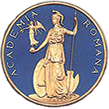

 P S I H O L O G I E
P S I H O L O G I E